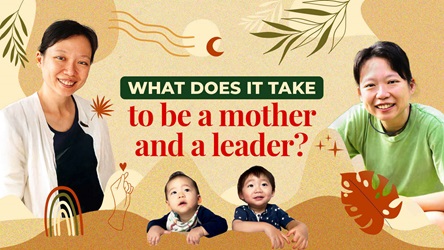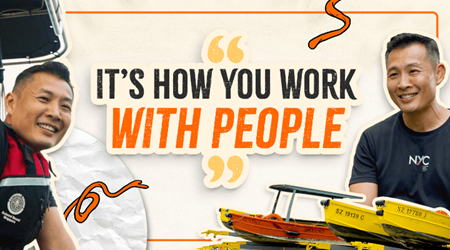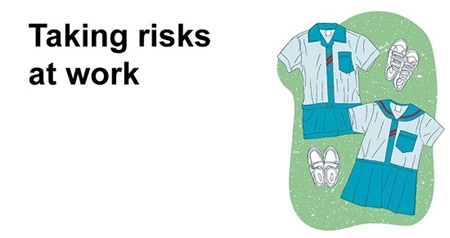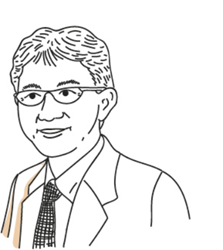"The Truth Comes Out When People Feel Safe To Fail"

Mr Zee Yoong Kang, Chief Executive Officer of the Health Promotion Board (HPB), is a man in a hurry. An hour over lunch is one of his few free slots in weeks. Even as he talks, his words come tumbling out.
“The constant feedback from my team is that we are running very fast and people need to rest,” he says, laughing.
Indeed, if the pace at the HPB seems frenetic, it is because Mr Zee and his team at the HPB have less than three years left to prove to the Ministry of Health that they can fulfil some very ambitious targets.
Back in 2013, he and his team had an “electrifying” realisation: the HPB’s programmes were not of the scale and reach needed to improve Singaporeans’ health in a measurable way.
All over the world, countries acknowledge that it is better to get people to live more healthily, than to build more hospitals to cope with a rise in chronic diseases. “So the issue wasn’t whether to do it, but how... and what to do [to] change people’s behaviour.” So far, no country has succeeded yet.
Mr Zee’s predecessor Mr Ang Hak Seng had taken the HPB through a period of frenetic experimentation. Through fast prototyping, the HPB had tried out, on a small scale, many ideas to get people to eat better and exercise more.

The challenge was to turn these projects into large-scale programmes that will impact hundreds of thousands of Singaporeans, an unprecedented move for the HPB. To do this, the HPB first negotiated a change in funding from its parent ministry. Instead of being funded for specific programmes, the HPB asked for a five-year block budget with clear and ambitious KPIs.
“We had an understanding with HQ, which was, ‘Look, we’ve had some small successes to prove the concept, but no one really knows what to do to scale them. So let’s set clear targets... and review them every year to check progress. But in the meantime, let us learn fast, adjust on the ground, and see how we do.”
“It was the relationship of trust we have with the Ministry that got us the approval.”
In return for the freedom to experiment with new programmes, Mr Zee promised accountability, honesty and transparency. “You allow us the autonomy to use the budget, and in return, we promise to be nimble [and] cost-effective in everything we do,” he explains.
A lot of that trust comes from not “fudging the numbers”, says Mr Zee. “If you fail, you tell them [so]. Show them what you have learned from your failure [and] what you are doing to improve. And they’re actually OK with that approach.”

Honesty’s the best policy
For Mr Zee, a culture of honesty is a priority, especially since the HPB is constantly experimenting to find the best ways to achieve public health outcomes. “If you want to learn fast, then people must be honest regarding what didn’t work.”
The nationwide One Million Kg Challenge was one such experiment that didn’t work. “We were stupendous at signing on a huge number of people… but guess what? At the end of the day, we lost a few tens of thousands of kilos – a huge percentage off the target,” says Mr Zee.
But in the process, the HPB learned many things. Not only did they realise that it was not easy for people to lose weight, they also had to scale down their ambition (“You are certainly not going to change your entire lifestyle in such a short time”). We also learned how to mobilise large numbers of people, for example through roadshows, and to generate excitement for our programmes.
These lessons poured into the National Steps Challenge, now in its second season.
“Where you fail, you take the good parts, you move on quickly. So, through that failure, we grew in our expertise,” observes Mr Zee.
To encourage a “just try” mindset, and to extend the freedom entrusted to him, he has also changed the way employees are appraised and recognised at the HPB.
“When we identify our best model staff, we don’t pick those who meet or exceed KPIs,” he says. “We pick those who dare to try new things, who make a real impact, who can work as a team… and we promote the people who exhibit the values we want to have.”
The critical juncture was after the first year of experiments. For the departments that did not meet their KPIs, an important part about the cultural change was to make it easy for them. Instead of pinpointing who failed, the more important discussion to be had was about the lessons learnt, he says. “Were the targets unrealistic? Were the assumptions wrong? What do we need to adjust?”
There must also be a culture where people feel safe to make mistakes. For example, when HPB’s Falls Prevention Awareness Campaign was mistranslated in Chinese, it was a “big boo-boo”, says Mr Zee. The Chinese-speaking community was upset. To prevent similar mistakes in the future, the leadership team asked to know everything that had happened, “except for the names of the people involved”. That last part assured staff that there would be no witch-hunt. It turned out that a step was skipped, and the HPB lacked staff who were proficient in Chinese.
“The truth comes out when people feel safe to fail,” he adds. “Send the signal that failure is okay, we just want to do better… and the word spreads very fast.”
Owning the journey
To influence people’s behaviour towards healthier lifestyles, the HPB also had to shift its approach away from using scientific studies only, and into the fields of cultural studies, economics, sociology and even anthropology.
To that end, Mr Zee has hired more people with diverse expertise. They include consumer product marketing specialists from the private sector who can contribute their insights into how humans buy things.
But in transforming the HPB, Mr Zee was adamantly against using management consultants to drive change. The man was a former consultant himself who had spent two years at global consultancy firm Bain & Co, before joining NTUC, where he set up its LearningHub.
“Consultants don’t know any better. They will look for best practices elsewhere and just benchmark them,” he says. “In public health, every country is different. We can’t afford to think that there is a solution somewhere else.”
More importantly, he believes that “change won’t work if you don’t own it”. It’s about getting everyone in the HPB “to embrace the situation, and experiment with new things and find our own solutions, when there are no guiding posts”, he says. “It’s not one blinding insight. We have to do a thousand innovations.”

What’s in your daily cuppa?
Teh C kosong, once a day.
Followed by many cups of coffee, black, straight. I am a caffeine fiend. I cannot abide by any sugar, and that started 20 years ago – nothing to do with the HPB!
- POSTED ON
Feb 24, 2017
- TEXT BY
Radhika Dhawan Puri
- PHOTOS BY
Norman Ng
- ART DIRECTION BY
Yip Siew Fei
-
Your Say
Taking Risks At Work









